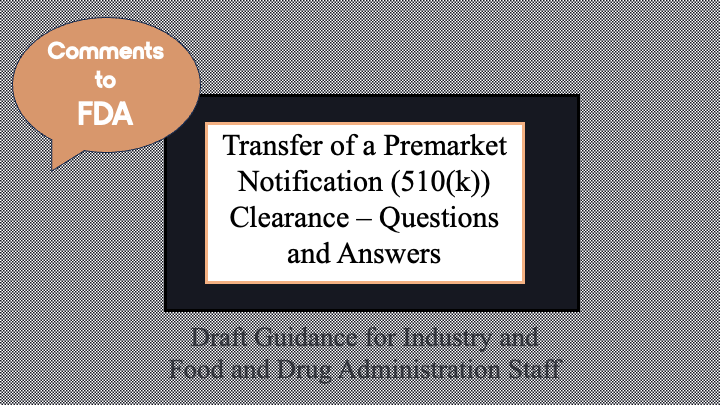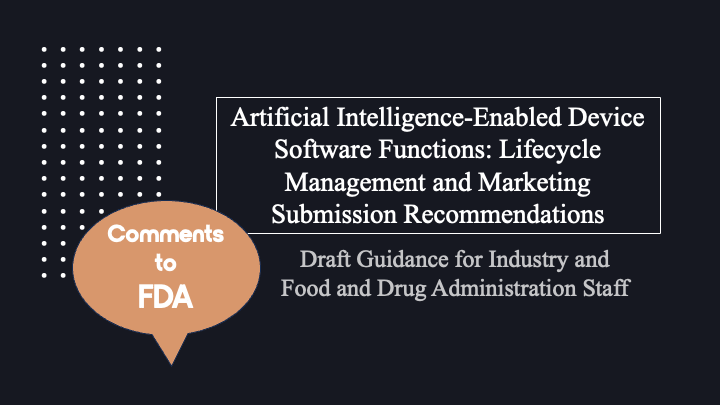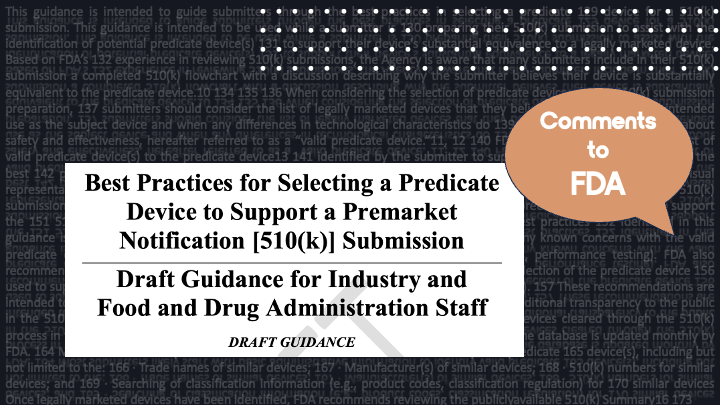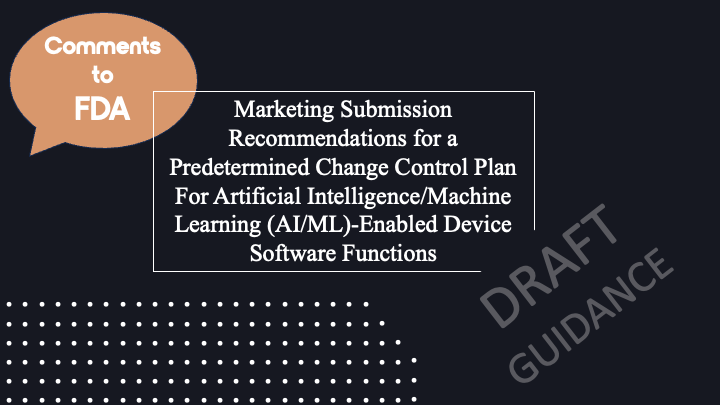M. Jason Brooke calls into question the Agency’s restatement and interpretation of the CFR, surfacing additional questions that industry would like answered.
.svg)
The team discusses fundamentals and contemporary issues shaping our areas of practice.
M. Jason Brooke calls into question the Agency’s restatement and interpretation of the CFR, surfacing additional questions that industry would like answered.
.svg)

M. Jason Brooke recommends finishing touches to the new draft guidance, requesting finer points on the Agency’s expectations for performance testing.
.svg)

The FDA wants 510(k) Sponsors to demonstrate that their valid predicate device is best-in-class. M. Jason Brooke explains why this move may be overly burdensome and beyond the Agency’s authority.
.svg)

M. Jason Brooke shares his practical and legal concerns with the new draft guidance affecting AI/ML-enabled device software functions, requesting that the Agency ensures clarity and consistency with U.S. regulations and effective FDA policy.
.svg)

The final version is a significant improvement to the 2005 version.
.svg)

This should be a major warning to Medical Device manufacturers, especially SaMD and Digital Therapeutics developers.
.svg)

The FDA cites failure to obtain a new market authorization and failure to document aspects of the Quality System.
.svg)

The FDA issued an Enforcement Transition Guidance, describing their plan to transition from certain COVID-19 era enforcement policies back to “normal operations.”
.svg)

There's a lot of detail to consider in this guidance.
.svg)

If you haven't integrated cybersecurity into your quality and regulatory activities, it's time.
.svg)

The new policy requires a highly subjective, case-by-case analysis. Industry needs to retrategize.
.svg)

The FDA's draft guidance, Content of Premarket Submissions for Device Software Functions, has some notable differences from the current guidance.
.svg)

Digital health innovation is driving the FDA to change regulatory policy for drugs, biologics, medical devices, and combination products. Stakeholders should pay attention.
.svg)
